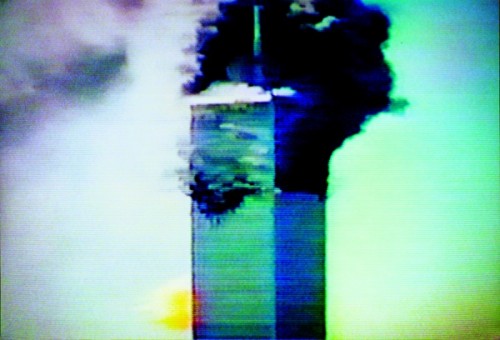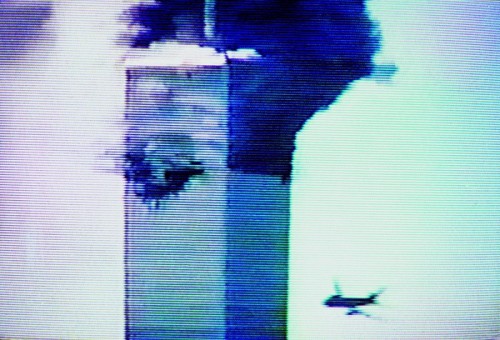World Trade Center Stoned
Controversial director presents restrained take on 9/11
By: Charles Giuliano - Aug 23, 2006
We are now just within days of 9/11/06 marking five years since the catastrophic terrorist attack on America that leveled the twin towers of the World Trade Center resulting in the loss of two thousand plus lives including more than three hundred police and fire first responders. Initially there was a hushed and reverent response as a shocked nation rallied around its President and his vow to hunt down the evil doers and terrorists around the world. There is no longer silence, wide disapproval, but not exactly pervasive dissent as Bush and his advisers used that patriotic mandate of support and self imposed silence to advance its own complex agenda.
Five year later the nation finds itself in a quagmire with a war on terrorism in Iraq, a country that aided and comforted virtually no known anti-US terrorists, while those who flew the planes into the World Trade Center included several Saudi nationals from a known "ally" of the United States. Immediately after 9/11 several Hollywood films with themes of fictional terrorist attacks on America were deemed in poor taste and summarily cancelled.
Time has the ability to ease our pain and heal the wounds of the national psyche so it was more a matter of when not if there would be major films treating such a complex and sensitive topic. It has eased its way into television such as the powerful Dennis Leary scripts for the drama series "Rescue Me" which tells the lives of Tommy and his NY firefighter co-workers who lost buddies, colleagues among cops, friends and family. Leary has vividly depicted the havoc of rough guys picking up the pieces unraveling the complexities over two absolutely brilliant seasons. The challenge of a film is to tell such an enormous story in a single sitting.
The results so far on the big screen have been remarkably narrow and restrained. The earlier "Flight 93" and the current "World Trade Center" seem to apologize to the audience for bringing up such horrific memories. In the first film, other than some establishing shots, all of the action is confined to the interior of the plane, which through the heroism of a handful of passengers, was deliberately crashed in an aborted attempt to attack a target in Washington, D.C. Much of the running time of Oliver Stone's "World Trade Center" is confined to the dark bottom of an elevator shaft where three police officers were buried for the better part of a day. Given the immensity of the event and the chaos that it entailed Stone's film is oddly slowed down to an agonizing snail's pace. A claustrophobic mood prevails as two of the officers, based on real life events, talked each other into staying awake and fighting to survive, while the third officer, mortally wounded, early on said goodbye and took his life. As in the earlier film there are a few establishing shots, taken from news footage and used with tasteful restraint, while the major action of the film consists of tight head shots of the soot covered face and lips of the two officers. It will be interesting to see if these actors get nominated for awards after lying immobile and using their lips for the better part of a film.
Certainly this was a risk taking decision for Stone who has made a career of directing big budget films for a mass audience with controversial, often stridently liberal treatments of the epic events of recent American history from the conspiracy theories of the Kennedy assassination "JFK" to a tough take on Vietnam "Platoon" a divisive war in which the director was a combatant. None of those signature Stone elements, for which he has been consistently attacked particularly from the right, are evident in this film. This treatment of 9/11 in using the dramatic vehicle of the personal experience of two of only 20 survivors of the collapse of the buildings, and the impact on their families, totally avoids taking on the continually troubling social, political, religious issues raised by the event. Our information about the attack, its perpetrators and their motives, is confined to the confused information of the men as they are moved into position as first responders on a bus racing downtown. One officer listening to a cell phone conveys that the second tower has been hit. Nicholas Cage as their commanding officer dismisses that as a rumor. In one cutaway scene a man in a control room announces "we are at war." While a Marine reserve confided to a priest that he has a calling to report for rescue duty at the site. He is revealed to be the actual rescuer who with another worker heard the signal of the trapped men.
A scroll down at the end of the film with text that updates the men and their lives two years later reveals that the heroic Marine later served two terms in Iraq. Stone presents this as unquestioned patriotism and explores none of the decision process that led us from the cold trail pursuit of Osama bin Laden to the Bush family feud with Saddam Hussein.
If Stone played true to form we might have expected an exposition of the conspiracy theory and intelligence lapses that led directly to the successful terrorist plot. We might have gotten an Abbott and Costello "Who's on first" replay of the scramble to move the President to safety while the first responses may have been orchestrated by a well entrenched, virtually invisible, Vice President Cheney. Stone might have used clips of a deer in the headlights President Bush reading stories to first graders before being guided away by handlers to gather his thoughts.
We may only speculate why the often strident Stone opted to stay within the narrow lines of his carefully honed tale of the personal heroism of these two survivors and their distraught families. Given the immensity of the disaster just how and why did Stone craft a feel good film with a grim but happy ending? Particularly when in the aftermath of 9/11 young men and women continue to sacrifice life and limb, at a never ending cost of billions of dollars, to track down the perpetrators who are more likely to be hunkered down in the mountains of Afghanistan or Pakistan than among the centuries old Shiite and Sunni enemies and "Insurgents" of Iraq. It is fair to say that none of the members of the Bush staff and cabinet have ever read Koran. They continue to espouse the desire to bring "liberty" "freedom" and "democracy" to a fundamentalist society for which the very notion of "democracy" is anathema to Islamic law and justice.
Ultimately, "World Trade Center" is a movie. Just a movie. No more or less. Give Stone credit for taking on a great and difficult topic with restraint that ultimately offends nobody. But it also fails to raise the bar of a nation's dialogue. It is best to say that the film is more good than great. To make such a statement is more a critique of Stone the artist than a comment that lacks compassion and patriotism. This is a drama not a documentary and as such it is appropriate to treat it as a work of art which in this case is at best marginal. The ability to argue and dissent is, after all, one of the most precious elements of the "liberty" and "democracy" that we hold so dear.
It is essential to respect the memory and loss of so many families but not to silence a discourse on the how and why of such a disaster. Stone the artist owes us more than what he revealed in this strangely understated film. Just when will the statute of limitations have passed on telling the whole story? Truth is that may take a generation.



